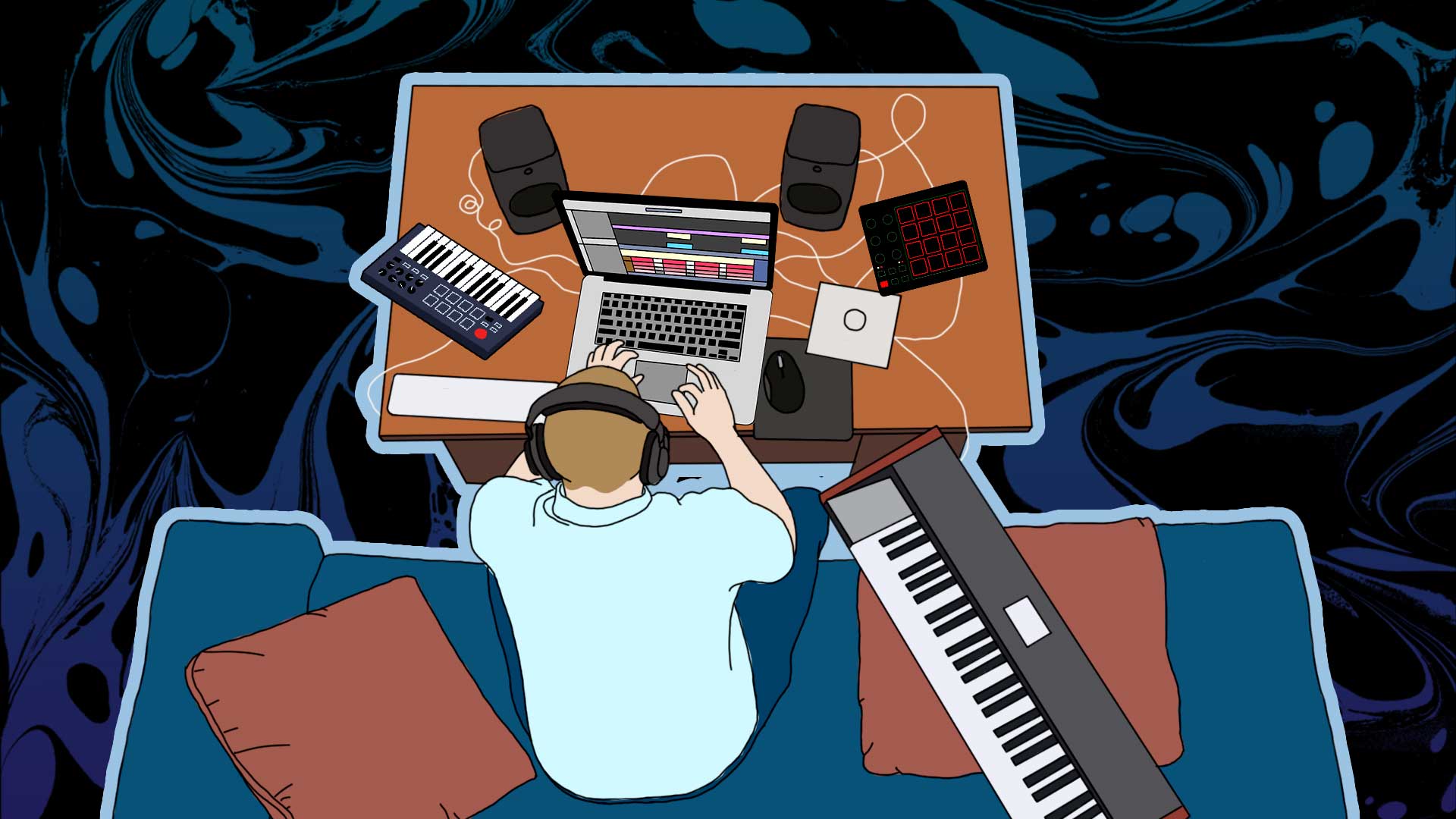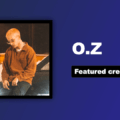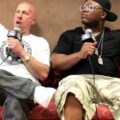Growing up in an immigrant family with a mother who sang and a former rockstar father, producer Kevin Figs quickly developed what would become two central pillars in his life: a deep love for music and an incredible work ethic. From discovering drums at three years old, to signing a record deal with his band at sixteen, to grinding in L.A. as a young producer – Kevin has experienced the highs and lows that often come along with a career in the music industry.
He is now a successful Montreal-based independent producer with two Juno nominations, several RIAA certified gold and platinum albums, and credits on records by DaniLeigh, Jeremih, Ty Dolla $ign, bülow, and many more.
He sat down with RAC to talk about the opportunities and lessons that guided him on his path and led him to where he is today.
RAC: You grew up in a musical household. Can you tell us a little bit about what that was like?
Kevin: My dad was a touring artist for a long time. He played bass, piano, guitar – everything. Eventually, he settled down with a family and got involved with the church, which is where I first discovered the drums. After that, I would bang on everything and anything I could get my hands on, until finally my parents got me a drum kit to prevent any further damage. I did about six months of drum lessons when I was seven years old, and the rest was pretty much learned by ear. I played all day, every day; I played in church every Sunday for most of my life.
RAC: As a teenager, you were in a band with your older brother and got a record deal. What was that experience like?
Kevin: The band got together when I was about fourteen or fifteen. I was the youngest of the group. I played the drums, and my older brother was the lead singer and songwriter. We met the bassist at church, and his cousin was our guitar player. At the time, my brother was enrolled at RAC and used what he was learning in the program to record the band’s album. He sort of took on the band’s manager role too. Meanwhile, I was doing a lot of YouTube content creation when we first started out, and was also learning how to make beats. I would record instrumentals to famous songs and film myself playing live drums. A lot of it was self-taught.
Learn more about RAC’s program here.
We got a record deal which lasted a few years, during which we had some moderate “indie” success and toured the U.S. east coast. I learned a lot from that experience. But my bandmates were older, and during college, reality set in. They had big life decisions to make, and ultimately, the band broke up.
RAC: What did you do next? What drove you to producing?
Kevin: Because I had been making beats since I was young, I decided to pursue studies outside of music. My second passion was film/video – I wanted to shoot music videos and skateboarding videos. But while studying film, I became wildly obsessed with learning about music production – plugins, synthesizers, etc. I spent all my time doing that. I was really determined to be better. I would skip classes to go to the piano room or to make beats. It became clear that I didn’t want to be in school; I wanted to make music.
After the band split up, I started reaching out to artists to play live drums for them. Eventually, I sent them beats, too. If I’d hear of someone, I’d send them my stuff – even just using Facebook. That’s when things began to evolve.
RAC: What was the turning point that led to you signing a publishing deal and moving to L.A.?
Kevin: I reached out to a local artist who I heard playing on the radio, and he invited me to his studio. That’s where I met another producer – and my now best friend – Retro Future. We played each other some beats and hit it off right away. We made a beat together that same day, which eventually fell into the hands of a manager from Toronto who was starting a publishing company (Dream Machine). That’s how we both got signed.
Not long after, I finished college and went out to L.A. to visit the owner of the company. I ended up staying for a few months, came back to get my things, and went back for another six months. The company then helped us get a work visa, so we were able to stay for almost five years.
It was the job of a lifetime. We were making beats all day, every day, seven days a week. Our publisher would set us up with artists for studio sessions. They worked with Prescription Songs, another publishing company owned by Dr. Luke (under RCA Records), which had a big roster of writers, producers, and artists. We got to work with artists like Doja Cat and Zara Larsson before they blew up. The deal opened so many doors and introduced us to all kinds of industry people.
RAC: You must have learned a lot. What is some of the best advice you received during that time?
Kevin: We had the chance to work with Dr. Luke’s right-hand producer at the time, Cirkut, who had worked with The Weeknd, Flo Rida, Katy Perry. We shadowed him and got a lot of great advice and technical tips too. One of them was to really learn compression: why it does what it does. Cirkut was also very experimental and taught me not to be overly protective about your sounds or afraid to destroy your audio and completely 180 it. At the time, I was really in pursuit of perfection and was afraid of going beyond what was “safe”. He showed me that there’s no right way to do things – learn the rules to break the rules. Know the technical stuff but don’t limit yourself to it. My manager at the time was a big proponent of this as well.
RAC: Did you ever experience imposter syndrome, working alongside such big names so early in your career?
Kevin: Tons of it – which is why I worked so hard. I did not go out; I lived and breathed production. I studied recordings. I did anything I could to get better. Given the opportunity I had, I had to make the most of it. We had a crazy schedule and worked at a crazy pace. We always felt like the underdogs – a lot of the opportunities we were invited to, we were third-party guests.
I knew I was there for a reason, but I still felt like everything I was making wasn’t good enough. Growing up with Portuguese immigrant parents, you’re driven to work your butt off, because it means so much to have an opportunity like that.
RAC: You’ve worked quite a bit with Jeremih, even earning some gold and platinum records. How did that come about?
Kevin: When we were in L.A., we met Jeremih at a meet and greet through our manager. A couple years later, we moved and realized that he was our next-door neighbour. We ran into each other a lot – that’s when Retro said, okay, we have to work together. We invited him over and wrote two songs that made it onto his upcoming album. Our relationship is still going strong.
RAC: What led you to eventually leave L.A. and pursue a career as an independent producer?
Kevin: We signed our deal when we were young and naive and hungry – we didn’t fully understand its implications until later on. It was essentially an indefinite contract. Over time, we started to see why certain things weren’t happening despite the amount of work we were putting in. We ultimately hired a lawyer and things ended amicably.
It was an expensive learning experience caused by our lack of business knowledge at the time. It’s important to get a really good lawyer before you sign, and one that’s on your side.
Also, as a producer it can take a long time to see money from the records you make; it’s mostly backend royalties. You always have to think a few years in advance. I knew I wanted to be independent, and it also just made sense financially to move back to Canada.
RAC: What’s it been like since you’ve gone independent?
Kevin: Being independent is definitely more work. But I have way more connections than when I started out – network is everything in this industry. I work with people locally but also collaborate remotely with people in Toronto and L.A.; I still work with Retro a lot. Many of those relationships I built are still going strong. I also dabble in video production, which is still an important creative outlet for me.
RAC: You’ve essentially built your own studio in Montreal. What equipment would you recommend for those starting out?
Kevin: The number one thing I would suggest is a good set of speakers. I’ve probably made about 75% of my career’s records on the Yamaha HS5s. They’re known for being a shitty speaker, a reference speaker – if it sounds good on that, it’ll sound good anywhere. You’re going to have to learn your speakers and commit to them; learn them well.
For headphones, I use the Audio-Technica ATH-M50X. They’re a great set, so comfortable. I’ve had them for ten years and they’re still going.
A good sound card and mic too. Sometimes I record some stuff on my phone – cool sound effects like the rain, birds in the background. No one can replicate that; it’s a way to personalize it.
RAC: Do you have any advice on working with artists in the studio?
Kevin: As we grew as producers, we learned to come prepared and know what you have. We always showed up with ideas ready to go. And if for whatever reason the artist doesn’t like the ideas, then we would be prepared to make something from scratch, even if it’s just loops to work off of.
You want to make it effortless for the artist – you don’t want them to be waiting on you to program that perfect drum loop. Some artists don’t mind being part of the process, but if you’re working with high-level artists, they’re usually not there for long. You have to have ideas ready, but you need to be flexible at the same time – it might not go the way you expected. If you make them feel good, then hopefully you’ll leave with something solid. Sometimes talking for a while also helps the songwriting process, because you’re connecting with them on a more personal level.
Written by Andria Piperni
Illustration by Yihong Guo





















